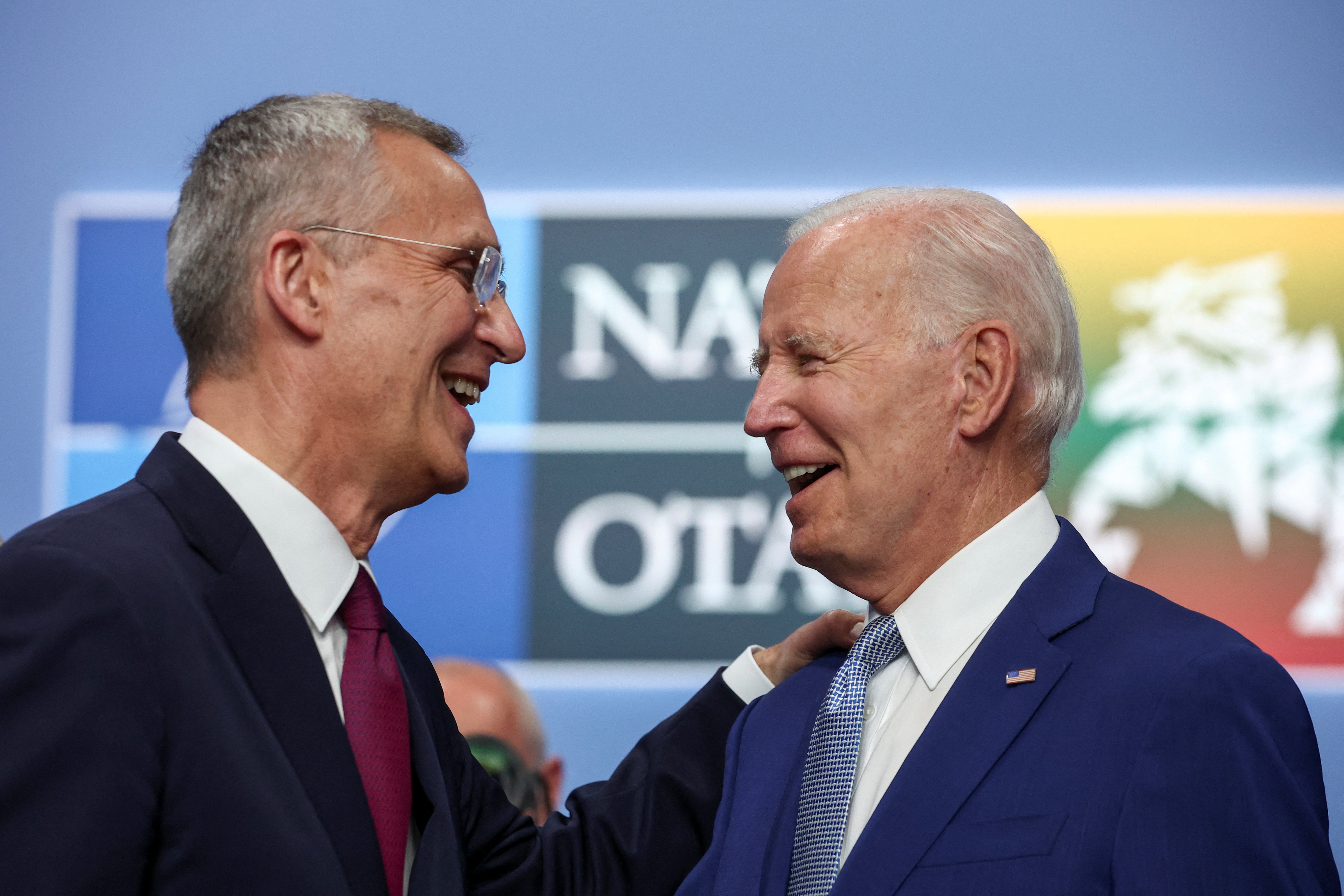Who will replace Jens Stoltenberg as secretary general of Nato?
Sean O’Grady looks at some of the candidates mooted to take over in 2024


There was rightly much talk at the Nato summit about Sweden acceding to Nato membership, a new partnership with Japan, and help with post-war construction in Ukraine, as well as discussion of continuing military support for the war-torn country, cluster bombs, and Ukraine’s path to becoming a full ally. But there was also much speculation about who the next secretary general of the North Atlantic Treaty Organisation is going to be.
Is there a vacancy?
Yes and no. A vacancy was due to arise this year, but given the war in Ukraine and the impressive performance of the incumbent secretary general, Nato leaders have decided to extend Jens Stoltenberg’s term by a further year, thus postponing, or least de-escalating, the politicking over the succession for a while.
In practical terms, it’s wise to keep Stoltenberg in post. A former Norwegian finance minister and prime minister, he’s been the civilian leader of Nato since 2014, succeeding Anders Fogh Rasmussen of Denmark. Stoltenberg’s term has been extended twice before, in 2019 and 2022. As a result, he has had to forgo the opportunity to become governor of the central bank of Norway.
A left-centrist and a skilled diplomat, he has proved well suited to brokering agreement within Nato’s sometimes quarrelsome 31 member states. His outstanding achievements have included convincing Turkey to allow Sweden to join, and maintaining a common policy on Ukraine. For an organisation that was seemingly in terminal decline, and threatened with US withdrawal by Donald Trump, Nato is now stronger, larger and more united than ever thanks to Stoltenberg’s skills (and the pressure of events). So, a hard act to follow when the time comes.
Who’s eligible?
Traditionally, the military leadership for Nato comes from America, while Europe provides the civilian counterpart. Since the first secretary general, Hastings Ismay, a British peer and a general in the British Indian army, was appointed in 1952, the post has been held by a further 12 diplomats. Eight countries have enjoyed the honour of supplying a secretary general – there have been three from the United Kingdom, three from the Netherlands, two from Belgium, one from Italy, one from Germany, one from Spain, one from Denmark and one from Norway.
The appointment is decided largely on pure merit, though politics always plays some part. With candidates often being chosen from among ministers of cabinet rank, there is some feeling now that former prime ministers make the best secretaries general thanks to their status and experience. (The current military head of Nato and supreme allied commander for Europe is Christopher G Cavoli of the US army.)
Is it true that Joe Biden favours Ursula von der Leyen and has snubbed the wannabe British candidate Ben Wallace?
There has been some heated reporting in that direction, but such speculation has been wrong before. The arguments in favour of Wallace at this time are strong: Wallace, along with the UK – initially led by Boris Johnson – has won respect by pledging early support for Ukraine, including the provision of armaments. Von der Leyen has been a mostly competent president of the EU Commission, but is widely regarded as having been a flop as German defence minister.
The Germans haven’t supplied a secretary general since Manfred Worner in 1988, and as the pre-eminent industrial power in Europe and supplier of many of the tanks heading east, may feel that adds to their case. The EU, as an entity, has never offered a Nato candidate, and all previous heads have been male. These factors may have recommended themselves to Biden; in the end, the choice has to be consensual.
Wasn’t it going to be ‘a Baltic’?
Yes, and it still may be. Given the motivating role and geopolitical position of the Baltic republics in resisting Russian aggression, the prime minister of Estonia, Kaja Kallas, has been seen as a good symbolic choice. She’d enjoy support from Latvia and Lithuania, and, more weightily, Poland. On the other hand, her hard line on Russia won’t commend her to France and Germany.
Still, the Danish prime minister, Mette Frederiksen (another female possibility), may be ahead of her, and recently visited Biden in Washington, as did Stoltenberg. Von der Leyen is still in the running, possibly creating a useful alternative vacancy for, say, Kallas or Frederiksen – though maybe not so much Wallace, especially post-Brexit, which was unpopular with virtually all the main players.
Any surprise candidates?
Yes. The collapse of the Dutch government has left the respected and highly experienced Mark Rutter at a bit of a loose end. A veteran of coalition politics, and with a firmly Atlanticist outlook, Rutter could be the man that everyone can rally around, perhaps with one of the eastern or Baltic figures acting as deputy secretary general: Romanian Mircea Geoana’s term is due to end next year.
The only major problem with Rutter is that he’s already declared that he wants to become... a teacher.






Join our commenting forum
Join thought-provoking conversations, follow other Independent readers and see their replies
Comments